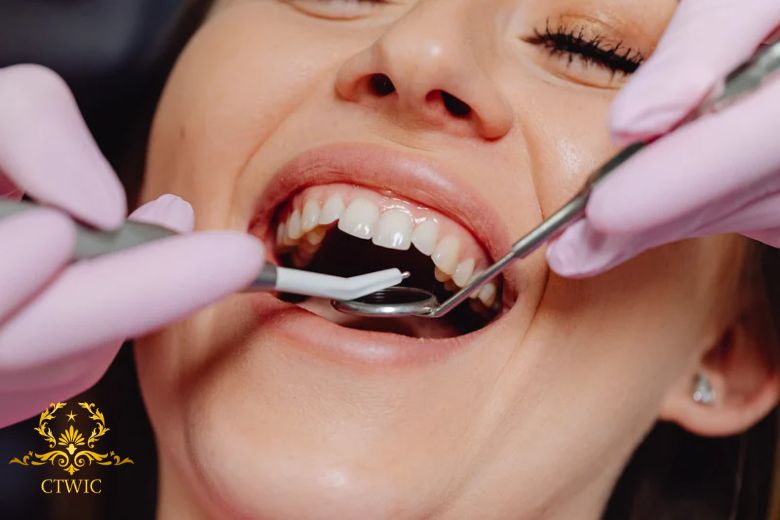Understanding the Causes of Swollen Gums
Swollen gums can be a bothersome dental issue that affects many individuals. Maintaining healthy gums is essential for overall oral health, as they provide support to the teeth and protect the underlying bone. In this article, we will explore the various causes of swollen gums and how to address them effectively.
Introduction
Table of Contents
Swollen gums, also known as gingival swelling, refer to the abnormal enlargement of the gum tissue. It can occur due to multiple factors and is often an indication of an underlying dental problem. Ignoring swollen gums can lead to more severe oral health issues, such as gum disease and tooth loss.

8 Skincare Supplements Dermatologists Love
Common causes of swollen gums
- Poor oral hygiene: Inadequate brushing and flossing can result in the accumulation of plaque and bacteria along the gum line, leading to gum inflammation.
- Gum disease: The most common cause of swollen gums is gum disease. There are two main stages of gum disease:
- Gingivitis: This early stage of gum disease is characterized by red, swollen, and bleeding gums. It is reversible with proper oral care.
- Periodontitis: If left untreated, gingivitis can progress to periodontitis, a more severe form of gum disease that affects the supporting structures of the teeth. This can cause gum recession and even tooth loss.
- Hormonal changes: Hormonal fluctuations during pregnancy, menstruation, or menopause can make the gums more susceptible to swelling and inflammation.
- Nutritional deficiencies: Lack of essential nutrients, particularly vitamin C and vitamin D, can weaken the immune system and contribute to gum problems.
- Allergic reactions: Some individuals may experience an allergic reaction to certain oral care products, such as toothpaste or mouthwash, resulting in gum swelling.
- Medications: Certain medications, such as anticonvulsants, immunosuppressants, and calcium channel blockers, can cause gum enlargement as a side effect.

Swollen Gums
Impact of lifestyle factors on gum health
- Smoking and tobacco use: Tobacco products have a detrimental effect on gum health, leading to an increased risk of gum disease and delayed healing of gum tissue.
- Stress: Chronic stress can weaken the immune system, making the gums more vulnerable to infection and inflammation.
- Poor diet: A diet lacking in essential nutrients can compromise gum health. Consuming excessive amounts of sugary foods and drinks can also contribute to gum disease.
- Alcohol consumption: Excessive alcohol consumption can dehydrate the body and reduce saliva production, increasing the risk of gum problems.
Medical conditions associated with swollen gums
- Leukemia: Swollen gums can be an early sign of leukemia, a type of blood cancer. Regular dental check-ups are crucial for early detection.
- Diabetes: Uncontrolled diabetes can impair blood flow and weaken the body’s ability to fight infections, including gum disease.
- HIV/AIDS: Individuals with HIV/AIDS often experience oral health problems, including swollen gums, due to a weakened immune system.
- Autoimmune disorders: Conditions like lupus and rheumatoid arthritis can cause gum inflammation and oral ulcers.
Remedies and treatments for swollen gums
To alleviate swollen gums and promote gum health, the following remedies and treatments can be beneficial:
- Maintaining good oral hygiene practices: Brushing twice a day, flossing daily, and using an antibacterial toothpaste can help reduce gum inflammation.
- Regular dental check-ups and cleanings: Professional cleanings remove plaque and tartar buildup, reducing the risk of gum disease.
- Using an antiseptic mouthwash: Rinsing with an antiseptic mouthwash can help kill bacteria and reduce gum inflammation.
- Home remedies for temporary relief: Applying a cold compress, rinsing with saltwater, or using herbal remedies like chamomile tea can provide temporary relief from swollen gums.
- Professional treatments for advanced cases: In severe cases, a dentist may recommend scaling and root planing, gum surgery, or antibiotic treatment to address gum disease.
Prevention of swollen gums
Preventing swollen gums is crucial for maintaining optimal oral health. Follow these preventive measures:
- Proper oral care routine: Brush your teeth at least twice a day, floss daily, and use an antimicrobial mouthwash to keep your gums healthy.
- Balanced diet and nutrition: Include foods rich in vitamins and minerals necessary for gum health, such as fruits, vegetables, dairy products, and lean proteins.
- Regular exercise: Physical activity improves blood circulation, which is essential for gum health.
- Stress management: Practice stress-reducing techniques like meditation, deep breathing exercises, or engaging in hobbies to maintain overall well-being.
Conclusion
Understanding the causes of swollen gums is crucial for maintaining optimal oral health. Whether it’s poor oral hygiene, gum disease, hormonal changes, or underlying medical conditions, taking proactive measures and seeking professional dental care can help prevent and treat swollen gums effectively.
FAQs
- Can swollen gums be a sign of a serious health condition? Swollen gums can be an indicator of underlying health issues, such as leukemia or diabetes. If swollen gums persist, it’s advisable to consult a dentist or healthcare professional.
- Are there any home remedies to reduce gum swelling? Home remedies like cold compresses, salt water rinses, and herbal remedies can provide temporary relief from gum swelling. However, it’s important to address the underlying cause with proper dental care.
- How often should I visit the dentist for check-ups? Regular dental check-ups every six months are recommended to detect and prevent dental problems, including swollen gums.
- Can pregnancy cause swollen gums? Hormonal changes during pregnancy can lead to swollen gums. It’s crucial to maintain good oral hygiene and inform your dentist about your pregnancy to receive appropriate care.
- What should I do if my swollen gums persist despite home remedies? If your swollen gums persist or worsen, it’s important to seek professional dental advice. A dentist can diagnose the underlying cause and provide appropriate treatment.
The 5 Best Diets for Women Over 50


